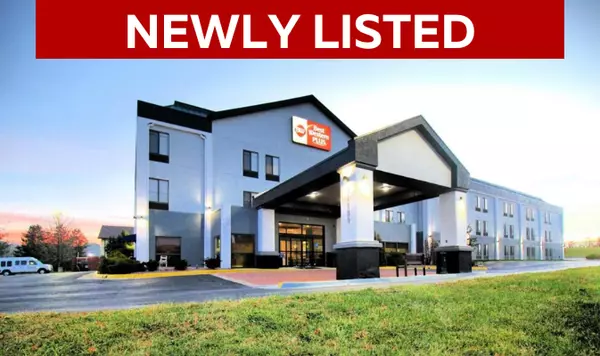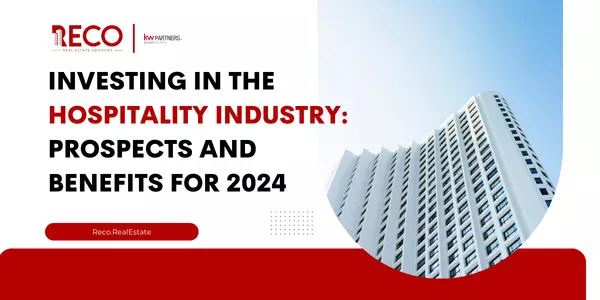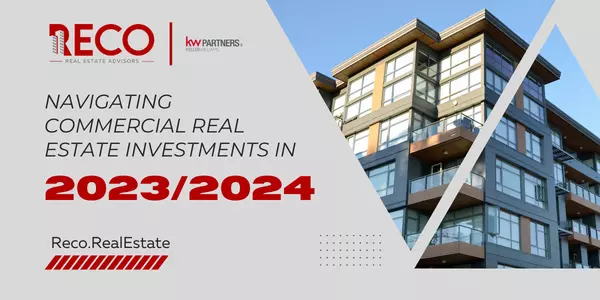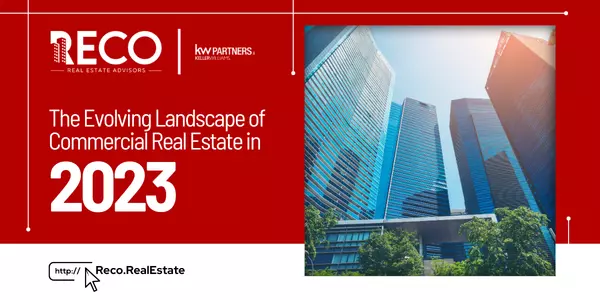Essential Tips for First-Time Commercial Property Investors

Essential Tips for First-Time Commercial Property Investors Investing in commercial real estate (CRE) can transform a portfolio, delivering consistent cash flow, appreciation, and a hedge against market volatility. However, the path to becoming a successful commercial property investor is nuanced, requiring a mastery of market dynamics, financial acumen, and strategic foresight. This guide presents key considerations for first-time CRE investors, offering a professional perspective on each step of the journey. Mastering Market Cycles: The Foundation of CRE Success The CRE market moves through distinct cycles: recovery, expansion, hyper-supply, and recession. Unlike residential real estate, which can be heavily influenced by sentiment, commercial markets are primarily driven by economic indicators such as employment, business confidence, and consumer spending. Professional Insight: First-time investors often overlook the timing aspect of investments. Entering the market during a hyper-supply phase can lead to prolonged vacancies and soft rents. Conversely, buying during recovery offers the potential for rapid appreciation and high demand. Studying metrics such as vacancy rates, cap rate compression, and local job growth provides a tactical advantage. Asset Class Selection: Tailoring to Your Strategy Commercial real estate offers a range of asset classes: office, industrial, retail, multifamily, and mixed-use. Each has unique characteristics, risk profiles, and management demands. Multifamily properties are renowned for resilience during economic downturns due to consistent housing demand, while industrial assets have seen significant growth, driven by e-commerce expansion. Conversely, retail properties present high upside potential, but tenant turnover and shifts in consumer behavior pose challenges. Consideration for New Investors: Focus on an asset class that aligns with your market knowledge and investment goals. Multifamily or industrial may offer more predictable cash flows, whereas office and retail demand a keen understanding of market trends and tenant needs. The Science of Location: Moving Beyond Surface-Level Metrics Location remains a cardinal rule in real estate. However, the depth of location analysis often distinguishes successful investors from the rest. It's not enough to focus solely on major intersections or "prime neighborhoods." Successful investors dig deeper, evaluating proximity to economic anchors, regional growth projections, infrastructure developments, and demographic shifts. Example: An industrial property near a major logistics hub or highway access can offer long-term value due to strong tenant demand. Similarly, understanding whether a neighborhood is undergoing gentrification or experiencing population decline provides critical foresight. Financial Modelling: Building Realistic, Stress-Tested Projections First-time investors frequently underestimate the complexity of CRE financial modelling. Unlike residential investments, commercial property valuations depend on income generation potential, and the financial health of an investment is captured through detailed metrics: Net Operating Income (NOI): Calculated as total income minus operating expenses, NOI serves as a baseline for property performance. Capitalization Rate (Cap Rate): This measure of return helps evaluate a property's relative value compared to its market peers. Internal Rate of Return (IRR): Capturing future cash flows and their time value, IRR offers a comprehensive view of long-term returns. Advanced Strategy: Create sensitivity analyses that model various market scenarios, such as rental rate declines or unexpected expense increases. This approach builds resilience into your projections. Structuring Financing: Navigating Complexity with Precision Financing a commercial investment involves navigating options beyond traditional mortgages. From SBA loans for owner-occupied properties to mezzanine financing and private equity partnerships, the range of financing vehicles provides flexibility but demands strategic consideration. Terms, interest rates, and loan covenants can all dramatically impact your investment's cash flow and profitability. Advice for First-Time Investors: Build relationships with CRE-focused lenders and explore creative financing structures that balance leverage with risk exposure. Asset Management: Ensuring Long-Term Property Performance The work of a CRE investor doesn’t end at acquisition. Managing a commercial property demands active engagement. This means prioritizing tenant relationships, lease structuring to maximise stability and potential upside, and implementing preventive maintenance plans. Long-Term Vision: Consider enlisting a professional property manager with experience in your chosen asset class. Effective management reduces tenant turnover, minimises costs, and optimises cash flow, enhancing long-term asset value. Mitigating Risks: The Art of Balancing Rewards Risk is inherent in every investment, but thoughtful mitigation strategies can shield against severe losses. Diversifying your portfolio across asset classes or geographic regions, maintaining a contingency reserve for unexpected expenses, and holding comprehensive insurance are practical measures to safeguard your investment. Conclusion: Precision and Strategy Lead to Success For first-time commercial property investors, success is not solely built on market knowledge but on strategic precision and disciplined management. CRE offers unparalleled opportunities, but seizing them requires mastery of market dynamics, a keen eye for opportunity, and the resilience to navigate market cycles. Armed with these principles, you stand poised to turn your first CRE investment into a cornerstone of financial success.
Read MoreUnlocking Potential: The Investment Opportunity at 11130 N Ambassador Dr, Kansas City

In the dynamic world of real estate, few opportunities present themselves as compellingly as the listing for 11130 N Ambassador Dr #Best Western Plus in Kansas City, MO. With a listing price of $0, this property stands out not just for its financial potential but also for its strategic location and modern amenities. Let’s delve into why this hotel is an enticing investment opportunity and explore the robust market demand that supports it. ### A Golden Opportunity for Owner-Operators One of the most significant advantages of this listing is its current absentee ownership. This creates a unique chance for a hands-on owner-operator to step in and maximize the hotel's potential. By taking an active role in management, an owner can implement strategies that drive revenue growth, enhance guest satisfaction, and ultimately increase profitability. Moreover, with the franchise renewal approaching in November, there exists a brand conversion opportunity. This flexibility allows a new owner to unflag the property before the renewal, providing options for brand management that can align more closely with market demands and personal business strategies. ### Financial Performance: A Bright Future Ahead The financial outlook for this property is robust, driven by several key factors. The recent expansion of Kansas City International Airport (MCI) has created an environment ripe for increased demand in local hospitality services. As passenger traffic continues to rise—11.5 million passengers served in 2023 alone—hotels near the airport are poised to benefit significantly. To capitalize on this growth, implementing dynamic pricing strategies and targeted marketing campaigns will be essential. These approaches can enhance revenue per available room (RevPAR), ensuring that the hotel remains competitive while maximizing income potential. ### Property Features: Modern Amenities That Attract Guests The Best Western Plus offers a range of modern amenities designed to cater to today’s travelers. Newly renovated rooms provide comfort and style, while facilities like an indoor pool, fitness center, business center, meeting room, and complimentary breakfast ensure high guest satisfaction rates. Recent renovations—including updates to guest rooms and common areas—have maintained the property's competitive edge in a saturated market. These features not only attract guests but also encourage repeat business—an essential element for any successful hotel operation. By focusing on guest experience and comfort, new ownership can build a loyal customer base that contributes to long-term profitability. ### Economic Drivers: A Strong Local Market Kansas City is home to several key demand generators that contribute significantly to its economy. Major employers such as Garmin Ltd., University of Kansas Health System, Burns & McDonnell, Hallmark, H&R Block, and Dairy Farmers of America provide thousands of jobs and ensure a steady influx of business travelers. Additionally, Kansas City hosts numerous conventions, sporting events, and cultural festivals throughout the year. The city’s vibrant atmosphere draws significant tourist traffic that benefits local hotels immensely. The presence of major sports teams like the three-time Super Bowl champion Kansas City Chiefs further enhances this appeal during football season and other major events. ### Proximity to MCI Airport: A Strategic Advantage The strategic location of 11130 N Ambassador Dr is another compelling reason for investment consideration. Situated just five minutes from MCI's newly opened $1.5 billion single terminal—equipped with modern amenities including advanced security checkpoints and various dining options—the hotel stands to gain from enhanced passenger experiences and operations. With future expansions expected at MCI—potentially increasing gate capacity from 39 up to 50—the airport's significance as a transportation hub will only grow stronger. This consistent growth underscores why investing in nearby hotels is not just wise; it’s essential for capturing future demand. ### Emerging Businesses: What Lies Ahead? Kansas City's economic landscape is continually evolving with new businesses sprouting across various sectors. Recent developments indicate an uptick in tech startups and healthcare facilities setting up shop in the area. As these sectors expand their workforce and attract talent from outside regions, they create additional demand for local accommodations. Moreover, ongoing infrastructure improvements and city initiatives aimed at boosting tourism promise even more opportunities on the horizon. This trend suggests that now is an ideal time to invest in properties positioned within this thriving market. ### Conclusion: Seize the Moment In summary, 11130 N Ambassador Dr #Best Western Plus presents a unique investment opportunity characterized by its absentee ownership model, strategic location near MCI Airport, modern amenities catering to travelers’ needs, strong economic drivers within Kansas City’s vibrant market landscape—and much more. For those looking to make their mark in real estate or expand their portfolio within a promising sector like hospitality, this property represents not just an investment but also a chance to shape its future success through hands-on management and innovative strategies. Don’t miss out on this golden opportunity; seize it before someone else does!
Read MoreMaximizing Hotel Value: An In-Depth Strategic Guide for Owners

Maximizing Hotel Value: An In-Depth Strategic Guide for Owners Introduction Enhancing your hotel's value for sale involves strategic positioning within the competitive market. This guide delves into comprehensive strategies to elevate your hotel's appeal and navigate market complexities effectively. 1. Conduct a Thorough Market Analysis Using the STAR Report In-Depth Analysis: Benchmarking Performance: Utilize the STAR Report to compare your hotel's ADR and RevPAR against the competition. Identifying disparities in performance indicators can highlight areas for improvement and potential growth, presenting these as opportunities for revenue enhancement to potential buyers. Growth Potential: Emphasizing areas where your hotel underperforms relative to the market can illustrate potential for growth. Demonstrating the capacity for improved revenue management and operational efficiencies suggests that a new owner could significantly enhance profitability. Location and Market Dynamics: Evaluate your hotel’s location advantages and market dynamics comprehensively. Discuss how the hotel's positioning within its locale or its niche market appeal can offer unique advantages to potential buyers. 2. Optimize Financial Performance Strategic Financial Management: Operational Cost Efficiency: Focus on areas where operational costs can be optimized without compromising service quality. Energy efficiency initiatives and contract renegotiations can result in substantial savings. Revenue Management Optimization: Highlight the importance of a dynamic pricing strategy and inventory management to maximize both occupancy and ADR. Discuss the role of strategic discounting, package deals, and loyalty programs in driving revenue. 3. Prioritize Renovations According to PIP Targeted Improvements: Brand Compliance and Guest Experience: Emphasize renovations that align with brand standards and directly enhance guest experience. Projects that visibly improve the property's appeal or guest satisfaction should be prioritized, as these are often most attractive to buyers. Investment in High-Impact Areas: Recommend focusing on renovations in areas that significantly impact guest perception, such as the lobby, guest rooms, and exterior aesthetics. Improvements here can dramatically enhance the hotel's marketability. 4. Enhance Your Hotel's Online Presence Robust Digital Footprint: Visual Storytelling: Utilize before-and-after visuals of improvements and renovations to tell a compelling story of the property's evolution. This visual documentation can significantly boost the property's perceived value online. Engagement with Reviews: Outline strategies for actively managing and responding to online reviews. A proactive approach to review management can improve a hotel's online rating and reputation, making it more appealing to buyers. Social Media and Digital Marketing: Discuss how an active social media presence and targeted digital marketing campaigns can increase brand visibility, drive direct bookings, and enhance the hotel's overall online presence. Conclusion A strategic, nuanced approach to preparing your hotel for sale not only spotlights its present worth but also its future potential. By focusing on key areas such as market analysis, financial optimization, targeted renovations, and digital presence, you prepare your property for a successful sale. This guide equips you with strategies to articulate and elevate your hotel's value in a competitive marketplace.
Read More-

Are you considering venturing into the hospitality industry or expanding your existing hotel portfolio? Then look no further than the exquisite Quality Inn By Choice Hotels located at 1807 Harding Dr #50, Parsons, KS 67357. This exceptional property, exclusively presented by Reco Real Estate Advisors, offers a remarkable investment opportunity that is perfect for both beginner and seasoned hoteliers. Let's dive into the details and explore why this property is an ideal choice for aspiring hotel owners and experienced industry professionals alike. Strategic Location: Situated at the prime intersection of U.S. Highway 400 and U.S. Highway 59 in Parsons, Kansas, Quality Inn By Choice Hotels enjoys unparalleled visibility and convenience. Its outstanding positioning makes it an excellent choice for travelers traversing these major regional thoroughfares. This strategic location ensures a steady flow of potential guests, guaranteeing consistent occupancy rates throughout the year. Superb Amenities and Recent Upgrades: Quality Inn By Wyndham stands out not only due to its strategic location but also because of its exceptional amenities. Boasting 50 well-appointed rooms, this hotel provides guests with a comfortable and enjoyable stay. Additionally, the property features a swimming pool and fitness room, adding an extra layer of leisure and relaxation for guests. Moreover, Quality Inn By Choice Hotels has recently undergone significant upgrades, reflecting the owner's commitment to high-quality hospitality. These enhancements include new carpeting, updated lobby furnishings, new mattresses and bed sets, efficient LED parking lights, a modernized exterior sign, and a new roof. By investing in these upgrades, the property positions itself as a contemporary and welcoming establishment, enticing guests to choose it as their preferred accommodation option. Promising Market Performance: The Kansas Area hotel submarket is currently experiencing signs of recovery and growth, making it an opportune time to invest in this flourishing market. With a trailing 12-month occupancy rate of 52.9%, the highest it has been in five years, and a remarkable 7.9% increase in Revenue per Available Room (RevPAR), the financial performance of hotels in the area is robust. This positive trend aligns with the market average, indicating a promising future for hoteliers in the region. Furthermore, the vibrant hotel market in Kansas has witnessed seven hotel trades in the past year alone, showcasing steady investor interest and market dynamism. This high level of transaction activity denotes a healthy and thriving hospitality industry, making it an ideal environment for both new and experienced hotel owners. Supportive Economic Environment: Parsons, the city where Quality Inn By Choice Hotels is located, boasts a dynamic and diverse economic landscape. The city administration is highly supportive of new businesses and expansions, offering generous city incentive packages. These attractive incentives include tax abatement and Rural Opportunity Zones, which foster a business-friendly atmosphere, conducive to growth and success. For aspiring hoteliers, these incentives provide a unique opportunity to establish a presence in a city that supports and encourages entrepreneurship. For seasoned hotel owners, expanding into Parsons allows for diversification within their portfolio while benefitting from a supportive economic environment. The Perfect Opportunity Awaits: In conclusion, Quality Inn By Choice Hotels presents a remarkable investment opportunity for both aspiring and experienced hoteliers. Its strategic location, exceptional amenities, recent upgrades, promising market performance, and supportive economic environment make it an ideal choice for anyone looking to venture into or expand their presence in the hospitality industry. With the Kansas Area hotel submarket displaying signs of recovery and growth, investing in this property offers a high potential for success. Take advantage of this perfect opportunity and embark on your journey toward owning and operating a thriving hotel business. Contact Reco Real Estate Advisors today to explore this exceptional investment prospect and secure your place in the ever-evolving real estate industry.
Read More Understanding the Hospitality Industry: A Comprehensive Overview for Business

Introduction: The hospitality industry encompasses a diverse range of businesses that provide lodging, dining, and entertainment services to travelers and locals alike. From hotels and resorts to restaurants, event venues, and more, the industry plays a pivotal role in offering comfort, leisure, and memorable experiences to customers. For those new to the hotel business, gaining a comprehensive understanding is crucial for success. Types of Hotels: Hotels come in various types, catering to different customer needs and preferences. Understanding these types is fundamental: Full-Service Hotels: Provide a range of amenities and services, including accommodation, dining, and recreational facilities. Limited-Service Hotels: Offer basic amenities, focusing primarily on providing comfortable lodging. Boutique Hotels: Smaller, unique establishments known for personalized services, distinctive themes, and intimate atmospheres. Resorts: Typically located in vacation destinations, resorts offer diverse recreational activities alongside lodging and dining. Extended Stay Hotels: Cater to guests staying for an extended period, providing amenities for a home-like experience. Budget or Economy Hotels: Aim to offer affordable lodging options with basic amenities. Key Success Factors in the Hospitality Business: Success in the hotel business is multifaceted. Key factors include: Guest Experience: Prioritize guest satisfaction through exceptional service, cleanliness, and amenities. Location: The right location can significantly impact a hotel's success, considering accessibility and local attractions. Marketing and Branding: Effective marketing and a strong brand image contribute to attracting and retaining customers. Technology Integration: Utilize technology for reservations, guest services, and operational efficiency. Quality Workforce: Well-trained and motivated staff enhance the overall guest experience. Considerations for Buyers: For those looking to enter the hospitality industry as buyers, certain considerations are crucial: Experience: Understand the nuances of the industry or hire experienced professionals. Market Research: Analyze market trends, demands, and competition in your chosen location. Financial Planning: Assess the financial viability and potential return on investment. Legal Compliance: Familiarize yourself with regulations and legal requirements. Due Diligence: Thoroughly inspect the property, assessing its condition and potential for improvements. Considerations for Sellers: Sellers in the hospitality industry should focus on maximizing value: Property Enhancement: Enhance the property's appeal through renovations and improvements. Financial Documentation: Present clear financial records and potential for revenue growth. Timing: Consider market conditions and timing to achieve optimal sale prices. Negotiation Skills: Develop effective negotiation strategies to secure favorable deals. Engage Professionals: Seek the assistance of hospitality brokerage firms for expertise in the selling process. Role of Hospitality Brokerage Companies: Hospitality brokerage firms play a pivotal role in facilitating transactions between buyers and sellers: Market Knowledge: Brokers possess in-depth knowledge of local markets, helping clients make informed decisions. Networks and Connections: Extensive networks enable brokers to connect buyers with suitable sellers and vice versa. Valuation Expertise: Brokers assess property values accurately, ensuring fair deals for both parties. Negotiation Skills: Skilled negotiators and brokers work to secure the best possible terms for their clients. Legal Guidance: Provide valuable legal guidance to navigate complex regulations and paperwork. In conclusion, success in the hospitality industry involves a nuanced understanding of the market, commitment to customer satisfaction, and strategic decision-making. Whether buying or selling, leveraging the expertise of hospitality brokerage companies can streamline the process and lead to mutually beneficial outcomes for all parties involved.
Read MoreThe Multifamily Real Estate Market Outlook for 2024

As we approach 2024, the multifamily real estate sector continues to demonstrate resilience and potential for investors. Analyzing various market forecasts and expert opinions provides a comprehensive picture of what to expect in the coming year. Market Resilience and Performance Trends Recovery and Stabilization: Despite facing unconventional trends in recent years, the multifamily market has been working back towards normalization. The third quarter of 2023 marked another period of positive apartment absorption, a sign of market resilience. This trend indicates a steady recovery, with annual absorption reaching positive figures for the first time since late 2022, as reported by RealPage Market Analytics.Occupancy Rates: Occupancy rates have stabilized at around 94.5%, just slightly below the 2010s average. Although there has been a modest contraction from early 2023, the occupancy rate remains robust compared to the more significant declines seen in 2022. This level of occupancy suggests further normalization of the market.Rent Growth Dynamics: Rent growth in 2023 has been somewhat inconsistent, primarily due to efforts to stabilize occupancy rates. New supply, particularly in certain submarkets, has been a key factor restraining rent growth. Areas with less new supply have seen larger rent increases, highlighting the impact of supply dynamics on rental performance.Supply, Demand, and Investment OpportunitiesForecasted Demand: There is an anticipation of continued strong apartment demand in 2024, driven by factors like job growth, improving consumer sentiment, and "real" wage growth due to declining inflation and robust wage increases. This environment is expected to support household formation and, consequently, demand for multifamily housing.Supply Surge and Impact on Rents: Approximately 1 million apartment units are under construction, with 2024 poised to witness significant apartment deliveries. This influx of new units is expected to exert downward pressure on rents, leading to modest rent growth predictions for the year.Regional Variations: Rent growth projections vary by region. Markets like the Midwest, Rust Belt, Mid-Atlantic, and select coastal markets are expected to see slightly higher rent growth, while areas with robust supply and stalled demand, such as the Desert/Mountain markets, are likely to experience limited rent growth.Long-term Investment Perspective Favorable Investment Environment: Reports, including those from PWC, highlight the multifamily sector as a solid investment option for 2024, with long-term demand drivers expected to sustain steady performance. Despite challenges such as rising interest rates and economic uncertainties, the sector's fundamental drivers remain favorable. Capital Appreciation and Rent Trends: Multifamily real estate has seen significant rent increases and property value appreciation over the last decade. Certain regions, notably Florida, have emerged as highly competitive rental markets with strong capital appreciation for investors.Supply-Demand Dynamics: Despite a recent surge in supply, the U.S. still faces a significant housing deficit. This chronic lack of supply, estimated at around 3.9 million units, underscores the continuous need for more multifamily housing to meet population demands and evolving lifestyle trends.Conclusion: Navigating the 2024 Multifamily MarketEntering 2024, the multifamily real estate market presents a nuanced landscape. Investors can anticipate a market that is recovering and normalizing, with stable occupancy rates and rent growth influenced by regional supply dynamics. The long-term outlook remains positive, buoyed by fundamental drivers like ongoing household formation and a persistent housing deficit. Investors considering the multifamily sector should weigh these factors, understanding regional variations and aligning their strategies with market trends to capitalize on potential opportunities.
Read MoreMaximizing Home Value: Understanding the Impact of Renovations and Upgrades

As the real estate market continues to evolve in 2023, homeowners are looking at renovations not just as a means to refresh their living space, but also as a strategic move to enhance property value. Understanding which renovations have the most significant impact is crucial. Kitchen Renovations: The Heart of the HomeImpact on Value: The kitchen is often considered the heart of the home. Upgrading this space can lead to a considerable increase in property value. A modern, functional kitchen appeals to buyers and can make your home stand out in the market. Cost vs. Value: While a major kitchen remodel can be expensive, it doesn't always translate to a proportional increase in home value. It's often more effective to focus on updates that improve functionality and aesthetic appeal, like new countertops or updated appliances, rather than a complete overhaul. Bathroom Updates: Comfort and StyleEnhancing Appeal: Bathroom renovations, especially those that introduce modern fixtures and efficient layouts, can significantly boost a home’s appeal. Adding features like dual sinks, modern lighting, and walk-in showers can transform an ordinary bathroom into a more luxurious and attractive space. ROI Considerations: The return on investment (ROI) for bathroom remodels can vary. Mid-range updates tend to recoup a good portion of the investment, especially in markets where buyers are looking for move-in-ready homes. Energy Efficiency: A Growing TrendLong-Term Savings: Energy-efficient upgrades, such as improved insulation, energy-efficient windows, and modern HVAC systems, not only appeal to environmentally conscious buyers but also offer long-term utility savings, making them an attractive feature. Market Demand: As energy costs rise and environmental awareness grows, homes with energy-efficient features are increasingly in demand. These improvements can also qualify for tax credits, adding to their appeal. Curb Appeal: First Impressions MatterImmediate Impact: The exterior of your home is the first thing potential buyers see. Simple improvements like landscaping, a well-maintained lawn, and a fresh coat of paint can significantly enhance curb appeal. Value Addition: Investments in curb appeal often have a high ROI, as they increase the perceived value of the home. Even minor changes, such as updating the front door or adding outdoor lighting, can make a big difference. Flooring: Foundation of a Home’s AestheticVisual and Functional Upgrade: Flooring is a key element of a home's interior. Hardwood floors are especially popular for their timeless appeal and durability. Refinishing existing hardwood can be a cost-effective way to rejuvenate a space. Options for Every Budget: Various flooring options, including laminate and vinyl, offer the look of hardwood without the higher cost. These can be particularly appealing in high-traffic areas or rental properties. Smart Home Features: Modernizing for the FutureTechnology Integration: Incorporating smart home features, such as programmable thermostats, smart locks, and home automation systems, adds a modern touch and can be a selling point for tech-savvy buyers. Customization vs. Universality: While some buyers appreciate high-tech upgrades, it's important to choose features that have broad appeal and are user-friendly. ConclusionInvesting in strategic renovations can significantly enhance the value of your home. Focusing on updates that improve functionality, aesthetic appeal, and energy efficiency can yield the best returns. Balancing these improvements with current market trends and buyer preferences is key.
Read MoreUnderstanding the 1031 Exchange: A Strategic Tool for Real Estate Investors

The 1031 exchange, deriving its name from Section 1031 of the Internal Revenue Code, stands as a significant instrument for real estate investors. It's designed to defer capital gains taxes that arise from the sale of an investment property, on the condition that the proceeds are reinvested into another property of a similar kind. This deferral mechanism allows investors to grow their real estate portfolios without the immediate tax burden, as explained by experts at Castling Tax. Mechanics of a 1031 ExchangeLike-Kind Property Rule: The cornerstone of a 1031 exchange is the requirement that the exchanged properties be 'like-kind.' This term is broadly interpreted in the tax code to include any type of investment property. However, it's crucial that these properties are held for productive use in a trade or business. This flexibility allows investors to diversify their portfolio by, for example, selling a rental house and acquiring an apartment building or even switching from residential to commercial properties, without immediate tax repercussions.Time Constraints: The 1031 exchange process is governed by strict time limits. Once the original property is sold, the investor has 45 days to identify potential replacement properties and a total of 180 days to complete the exchange. This timeframe includes weekends and holidays, making it imperative for investors to act swiftly and decisively.The Role of Boot: 'Boot' refers to any cash or debt relief received in the exchange. It's a critical aspect since any boot received is taxable. Successful execution of a 1031 exchange typically involves structuring the deal to avoid any boot, ensuring full deferment of capital gains tax.Multiple Property Identification: Investors can identify up to three potential replacement properties, adhering to what's known as the 'Three-Property Rule.' Alternatively, they can identify more properties, provided their combined value doesn’t exceed 200% of the value of the relinquished property, known as the '200% Rule.' There's also a '95% Rule,' which allows the identification of an unlimited number of properties regardless of their total value, with the condition that at least 95% of the value of the identified properties is purchased.Benefits and Strategic ConsiderationsTax Deferral: The primary benefit of a 1031 exchange is the deferral of capital gains taxes, which can be substantial, particularly for properties that have significantly appreciated in value. This deferral enables the reinvestment of more capital into new properties, amplifying an investor’s buying power.Portfolio Diversification and Growth: By facilitating the exchange of different types of properties, 1031 exchanges offer a pathway for diversification. Investors can shift from one real estate market or property type to another, aligning their portfolio with market trends and personal investment strategies.Professional Assistance: Navigating a 1031 exchange can be complex, involving nuanced tax laws and strict timelines. Engaging a qualified intermediary is often recommended to ensure compliance with IRS rules and to guide investors through the intricate process.Why Investors Opt for 1031 Exchanges Real estate investors leverage 1031 exchanges primarily for the tax deferral benefits. This strategy allows them to preserve capital, reduce the immediate tax burden, and reinvest in higher-value properties or more lucrative markets. The ability to adapt and grow their investment portfolio without the immediate tax consequences of selling properties makes the 1031 exchange a powerful tool in an investor’s arsenal. ConclusionThe 1031 exchange remains a pivotal strategy for savvy real estate investors looking to maximize their investment returns while deferring taxes. Its intricate rules and potential benefits underscore the importance of understanding this investment tool thoroughly and seeking professional guidance for successful implementation. As real estate markets evolve, the 1031 exchange offers a flexible and advantageous path for investors aiming to grow and diversify their property holdings.
Read MoreInvesting in the Hospitality Industry: Prospects and Benefits for 2024

The Resilience and Recovery of the Hotel Industry As we approach 2024, the hospitality industry, particularly hotels, is showing signs of a robust recovery post-pandemic. The resilience of this sector has been notably impressive; by late 2022, hotel demand was only marginally below pre-pandemic levels. This comeback underlines the potential for impressive returns that hotel investments can offer. The flexible pricing model of hotels allows for dynamic adjustments based on demand, contributing to their profitability. Brand Power in Hospitality InvestmentsMost hotels in the U.S. are part of well-known brands like Marriott, Hyatt, Hilton, and Holiday Inn. This brand association brings several advantages, including consistent customer experiences and built-in brand recognition. For investors, especially novices, this translates into a lower risk profile, as these brands provide extensive support and knowledge to franchisees, making them particularly attractive investment options. Operational Dynamics and Market SensitivityHotels require a blend of complex operations and strategic management. The success of a hotel investment hinges significantly on operational strength, encompassing everything from efficient front-of-house service to effective marketing strategies. The industry's sensitivity to economic fluctuations necessitates a hands-on approach and a strong management team. Investors need to be mindful of the high operational demands and the potential for economic vulnerabilities. The Digital Influence on Hotel InvestmentsThe rise of online travel advisors and review platforms like Yelp has significantly impacted the hospitality industry. These digital platforms have changed customer behavior, leading to increased price sensitivity and heightened importance of online reputation. Consequently, maintaining high service standards and actively managing online presence are more crucial than ever for the success of a hotel investment. Financial Considerations and Tax BenefitsInvesting in hotel real estate, whether independently or through private equity syndication, offers several financial benefits, including cash flow, equity, appreciation, and tax advantages. These benefits are similar to those found in other real estate investments, making hotels a potentially lucrative addition to an investor’s portfolio. Future Outlook: A Strong Rebound in TravelExperts predict a strong rebound in travel demand over the next few years, which bodes well for the hotel industry. Occupancy rates and other key metrics have already surpassed 2019 pre-pandemic rates, indicating a robust outlook for both leisure and business travel. This forecast suggests a promising future for hotel investments, with opportunities for growth and profitability. Conclusion: Weighing the ProspectsInvesting in the hotel industry as we head into 2024 presents a unique blend of challenges and opportunities. The sector's recovery trajectory, coupled with the advantages of brand affiliation and the potential for high returns, makes it an attractive investment option. However, the operational complexity, sensitivity to economic shifts, and the evolving digital landscape require careful consideration and strategic planning. For investors willing to navigate these dynamics, hotel investments can offer a promising avenue for diversification and growth. As with any investment, staying informed and understanding market trends is essential to making sound decisions. The hospitality industry, with its current momentum and future potential, offers a compelling opportunity for those looking to invest in a sector with both immediate returns and long-term growth prospects.
Read MoreAdapting to Inflation: Strategies for Residential Real Estate Investment

Navigating the residential real estate investment landscape amidst inflation requires a multifaceted approach, integrating insights from various sectors of the real estate market. Inflation and Housing Prices According to Northern Real Estate Group, the direct impact of inflation on housing prices is significant. Increased costs in construction materials and labor due to inflation often lead to higher property prices, impeding prospective homebuyers from entering the market. Mortgage Rates and Housing Affordability Mortgage rates, intricately linked to inflation, are pivotal in determining housing affordability. Central banks' responses to inflation, such as increasing interest rates, can elevate borrowing costs for homebuyers, affecting real estate investment. Rental Market Dynamics The rental market is also affected by inflationary pressures. As living costs rise, landlords may increase rental prices, influencing tenants' ability to afford housing and causing shifts in supply and demand within the rental market. Strategic Investment Approaches In light of these challenges, real estate, traditionally viewed as a hedge against inflation, requires diverse strategies in 2023. Investors should consider the impact of inflation on property values and rental income, necessitating adaptive investment strategies. Diversification with Inflation-Resistant Assets Diversification with inflation-resistant assets like inflation-protected securities (IPS), commodities, and REITs could provide a more balanced investment approach, ensuring financial stability in inflationary times. Energy-Efficiency Incentives and Technological Tools Investors should focus on energy-efficiency incentives and technological advancements. Adhering to decarbonization initiatives and understanding tax deductions for energy-efficient buildings can be financially advantageous. Leveraging technology for transparency and efficiency can enhance investor relations and confidence in the market. Repurposing Existing Spaces Deals involving the repurposing of existing spaces, particularly in the office and retail sectors, may present unique opportunities for conversion for multifamily, industrial, or warehouse uses. Embracing Live/Work/Play Concepts Evolving demographics have highlighted opportunities in developing housing with live/work/play concepts. This includes catering to the growing demand for senior living communities and creating multifaceted environments for younger demographics seeking convenience and community in their living spaces. In summary, navigating residential real estate investment during periods of inflation in 2023 demands a strategic and adaptable approach, considering the broader economic influences, technological advancements, and demographic shifts shaping the market.
Read MoreNavigating Commercial Real Estate Investments in 2023/2024

In the ever-evolving landscape of commercial real estate, 2023 presents a unique set of challenges and opportunities for investors. Understanding these trends is crucial for making informed decisions. Here's what you need to know: Market Trends: A Look at the Current ClimateInvestment Volume and Cap Rates: CBRE's 2023 U.S. Real Estate Market Outlook Midyear Review indicates a significant shift in investment volume, expected to fall by 37% in 2023 and rise by 15% in 2024. Cap rate expansion is also anticipated to continue throughout 2023, though at a slower pace. This suggests a market in transition, offering strategic opportunities for informed investors. Challenges and Opportunities: According to JPMorgan Chase's 2023 Commercial Real Estate Trends report, the sector faces challenges such as retail transformation, uncertain office space futures, supply chain disruptions, and near 40-year high inflation rates. However, it's not all bleak; certain segments of the market still offer bright spots for the discerning investor. Rising Interest Rates: The Fed's rapid interest rate hikes, as noted by J.P. Morgan's 2023 midyear outlook, have created a complex borrowing landscape. This affects refinancing activities, with many commercial real estate owners paying rates lower than current levels. Understanding these financial dynamics is key to navigating investments this year.Investment Strategies: Adapting to ChangeInvestment strategies in commercial real estate must evolve with the market. Here are a few approaches to consider: Diversification: With record-high vacancy rates in some property types, diversification is more important than ever. Instead of focusing solely on traditional investments, consider expanding your portfolio to include different types of commercial properties or exploring emerging markets.Long-Term Planning: Given the fluctuating nature of the market, a long-term perspective can be beneficial. This involves looking beyond immediate returns and focusing on the potential long-term growth and stability of different real estate segments. The Road Ahead: Positioning for SuccessIn conclusion, 2023 is a year of both challenges and opportunities in commercial real estate. By staying informed about market trends and adapting investment strategies accordingly, investors can navigate these turbulent times effectively. Whether you're a seasoned investor or new to the market, understanding these dynamics is crucial for making sound investment decisions. At Reco Real Estate Advisors, we specialize in providing expert guidance and tailored solutions for your commercial real estate needs. Our team is dedicated to helping you make the most of the current market conditions. For more insights and personalized advice, contact us today.
Read More-

Hospitality Broker in Kansas: A Guide for Sellers, Market Update, and Investing Welcome to our real estate blog focused on the hospitality industry in Kansas! Whether you are a seller, a potential investor, or simply interested in the current market updates, this blog will provide you with valuable insights into the world of hospitality real estate. Sellers in the Hospitality Market If you are looking to sell your hospitality property in Kansas, it's crucial to work with a dedicated hospitality broker who understands the unique dynamics of this industry. As an experienced hospitality broker, our goal is to maximize your property's value while ensuring a smooth and efficient transaction. One of the key aspects we focus on when working with sellers is conducting a thorough property valuation. We analyze multiple factors, such as location, condition, profitability, and potential for growth, to determine the optimal listing price. Additionally, our extensive network of contacts and marketing strategies help us attract qualified buyers who are serious about investing in the hospitality sector. Market Update: The Current State of Hospitality Real Estate in Kansas The hospitality industry, like many other sectors, has been impacted by the COVID-19 pandemic. However, as businesses begin to reopen and travel restrictions ease, the market is showing signs of recovery. Kansas, with its vibrant cities and popular tourist destinations, continues to attract both domestic and international visitors. Investors are taking notice of the opportunities presented by the state's hospitality market. The demand for hotels, resorts, bed and breakfasts, and other accommodation options remains high. Kansas offers a diverse range of attractions, from its bustling cities to its scenic landscapes, making it an appealing destination for both leisure and business travelers. Investing in the Hospitality Sector If you are considering investing in the hospitality sector, Kansas offers a promising landscape. However, it's essential to approach any investment with thorough research and due diligence. Here are a few key factors to consider: 1. Location: Choose a location that aligns with your investment goals. Consider areas with high tourist traffic, proximity to major attractions, and business centers. 2. Market Analysis: Analyze the current market trends, demand, and supply dynamics in your chosen location. Identify any gaps or opportunities that could give you a competitive edge. 3. Financial Viability: Assess the financial viability of the investment. Calculate potential returns, operating costs, and consider factors such as seasonality and market volatility. 4. Property Management: Determine whether you will manage the property yourself or hire a professional management company. The success of your investment relies heavily on efficient operations and excellent guest experiences. 5. Regulatory Compliance: Familiarize yourself with local regulations and licensing requirements. Ensure you adhere to all legal obligations before and after acquiring a hospitality property. Partner with a Hospitality Broker in Kansas Navigating the hospitality real estate market can be complex, which is why partnering with a knowledgeable hospitality broker is essential. We bring years of experience and expertise to the table, assisting both sellers and investors in achieving their goals. Whether you are looking to sell your hospitality property or explore investment opportunities in Kansas, our dedicated team is here to guide you through the process. We understand the market, stay up-to-date with industry trends, and have a proven track record of success. In conclusion, the hospitality sector in Kansas offers exciting opportunities for both sellers and investors. By partnering with a trusted hospitality broker and staying informed about market updates, you can make well-informed decisions and capitalize on the potential of this thriving industry.
Read More The Evolving Landscape of Commercial Real Estate in 2023

The year 2023 has been marked by a series of transformative events in the commercial real estate sector. With the global economy still recovering from the aftershocks of the pandemic and new challenges arising, the real estate market is at a pivotal juncture. One of the most significant influencers has been the fluctuating mortgage rates, casting a shadow of uncertainty across various sectors, from office spaces to multifamily properties. A Comprehensive Look at the Data Recent insights from the National Association of Realtors (NAR) have shed light on some intriguing trends. The leasing velocity in commercial real estate has experienced a noticeable deceleration during the second quarter. This slowdown is not an isolated event but seems to be a direct consequence of the uncertainties introduced by bank failures earlier in the year. The commercial real estate sector, which has traditionally relied heavily on small banks for capital, finds itself at a crossroads. A potential pullback in lending from these institutions could send ripples across the market. However, it's not all gloom and doom. Encouragingly, there's been a consistent uptick in commercial real estate lending activity. But on the flip side, the delinquency rates for commercial loans, though still below 1%, have been on an upward trajectory since the close of 2022. How have fluctuating mortgage rates in 2023 impacted the decision-making process for businesses? The oscillating mortgage rates have introduced a layer of uncertainty for businesses. With rates hovering between 7% and 8%, the cost of financing commercial properties has increased. This has led many businesses to reconsider their real estate strategies, with a noticeable shift towards leasing over purchasing. The unpredictability of the rates has also made short-term leases and flexible leasing options more attractive. The Office Sector: A Period of Transition The office space landscape is undergoing a metamorphosis. There's an undeniable surge in available spaces for lease, a trend that's been exacerbated by the slow return-to-office movement. The pandemic introduced the world to the feasibility and efficiency of remote work, and its effects linger. The rise of hybrid work models, where employees split their time between home and office, has left a significant portion of office spaces underutilized. Additionally, in a bid to optimize resources, many tenants have recalibrated their requirements, often opting for reduced square footage per employee. This shift in dynamics means that the office sector is in a state of flux, trying to find its footing in this new normal. With the rise of hybrid work models, what's the future of traditional office spaces? The pandemic accelerated the adoption of hybrid work models, where employees split their time between home and office. This has resulted in a significant portion of office spaces being underutilized. While some businesses are reducing their office footprints, others are repurposing spaces to cater to collaborative and flexible work environments. The office sector is evolving, and while traditional office spaces won't disappear, they'll likely undergo transformations to meet the changing needs of businesses. Concluding Thoughts The commercial real estate landscape in 2023 is a tapestry of challenges and opportunities. For businesses, investors, and stakeholders, the mantra for success lies in agility, foresight, and the ability to adapt to an ever-evolving market landscape.
Read MoreThe Importance of a Good School District in Home Buying

When it comes to buying a home, many factors influence a buyer's decision: the home's design, proximity to work, neighborhood safety, and of course, local school districts. For families with children, the quality of nearby schools is often at the top of the list of considerations. However, even for those without children, a good school district can significantly impact the value of your home. This article explores why a good school district is important when purchasing a home. Boosts Property Value Homes located in good school districts tend to maintain their value better than those in less desirable districts. They are more resistant to economic downturns and often appreciate in value faster. This is because the demand for homes in top-rated school districts is always high, which drives up home prices. Promotes Easy Resale A home in a good school district is typically easier to sell. When it's time to put your house on the market, being in a top-rated school district can be a major selling point. Buyers, especially those with children, prefer homes where quality education is readily accessible. This means your property is likely to sell faster and potentially at a higher price. Ensures Quality Education If you have children or plan to, buying a home in a reputable school district ensures they have access to quality education. Better school districts often mean better teachers, better resources, and a better overall educational environment. This can set the foundation for their academic success and future opportunities. Enhances Community Engagement Schools are often the heart of a community. School sports, arts, and other events can bring a community together and create a warm, friendly environment. Living in a good school district often means living in an engaged and active community, which can significantly enhance your family's quality of life. Increases Safety Areas with good schools often tend to have lower crime rates. Families with children prioritize safety, and schools also strive to maintain a secure environment for their students. This focus on safety typically extends to the surrounding neighborhoods, making them safer places to live. May Provide Better Public Amenities Neighborhoods with good schools often boast better public amenities. This might include well-maintained parks, public libraries, community centers, and more. These amenities can add to your quality of life and provide great places for relaxation and recreation. In conclusion, the importance of a good school district in home buying extends beyond the immediate need for quality education. It impacts property values, the ease of resale, the level of community engagement, and neighborhood safety. Even if you don't have school-aged children, considering the quality of local school districts when buying a home can be a wise investment strategy. Therefore, it's always a good idea to factor in the quality of the school district in your home buying decision.
Read MoreThe Crucial Role of a Real Estate Agent in Home Buying: A Comprehensive Guide

Buying a home is one of the most significant decisions you'll make in your life. It can be an intricate process involving various steps that, when navigated correctly, lead to your dream home. Central to this journey is a figure of paramount importance - the real estate agent. Understanding the role a real estate agent plays in home buying is key to appreciating the value they bring to your home purchasing journey. Understanding Your Needs A real estate agent’s role begins with understanding your needs and preferences in detail. This includes your budget, the type of home you're looking for, your preferred neighborhoods, and your must-have features. By truly comprehending your requirements, a real estate agent can curate a list of properties that align with your vision of a dream home. Market Knowledge Real estate agents are masters of their local markets. They have a thorough understanding of market trends, neighborhood-specific data, and comparative market analysis. They can provide insight into whether it's a buyer's or seller's market and guide you accordingly. Their deep knowledge of the market can be an invaluable resource in your home buying journey. Property Search Finding the right home can be time-consuming. Real estate agents streamline this process by leveraging their resources and networks. They provide you with access to various listings, some of which may not be widely advertised. Additionally, they coordinate visits to the shortlisted homes, saving you time and effort. Negotiation Expertise Once you've found your potential home, the negotiation phase begins. This stage is critical and can significantly affect the final purchase price. Real estate agents are skilled negotiators. They use their understanding of the property's value, local market trends, and any potential property issues to negotiate a fair price on your behalf. Managing Paperwork The home buying process involves a considerable amount of paperwork, which can be overwhelming. Real estate agents are well-versed in handling contracts, disclosures, and the other necessary documents involved in a real estate transaction. They ensure everything is in order, minimizing the chances of post-purchase legal issues. Navigating the Closing Process The closing process can be a complex maze of lenders, attorneys, title companies, and more. A real estate agent guides you through this process, coordinating with all parties involved and ensuring all the necessary steps are taken. They keep track of deadlines and make sure all the required paperwork is submitted promptly. Post-Sale Support A real estate agent's role doesn't end with the closing of the sale. Often, they continue to provide support by offering assistance with moving and relocation logistics, recommending local contractors or services as needed, and staying available for any post-sale issues or questions you may have. Maintaining a Fiduciary Duty Above all, real estate agents have a fiduciary duty to their clients. This duty obligates them to put your interests above their own. They must provide you with the highest standard of care, maintain confidentiality, and strive to ensure that your home buying process is as smooth and beneficial to you as possible. Engaging a real estate agent when buying a home brings invaluable benefits. They provide expert guidance throughout the process, mitigate potential issues, and ultimately help you navigate the complex journey towards finding your dream home. It's their experience, market knowledge, and dedication to your interests that truly illuminate their crucial role in home buying.
Read MoreHow to Finance Your Home Purchase: A Detailed Guide to Securing the Funds

Buying a home is a significant financial undertaking, possibly one of the most substantial investments you'll make in your life. Thus, understanding how to finance your home purchase is crucial. This detailed guide aims to help you explore various options and make an informed decision on financing your dream home. Understanding Your Financial Status Before exploring your options, it's essential to assess your financial health. This involves understanding your credit score, income stability, savings, and existing debt. Lenders will review these factors when determining your eligibility for a loan, so it's crucial to familiarize yourself with them. A higher credit score, stable income, and substantial savings can lead to more favorable loan terms. Similarly, having a lower debt-to-income (DTI) ratio will make you a more attractive borrower. If your financial assessment reveals areas for improvement, take time to address these issues before applying for a mortgage. Exploring Mortgage Options When it comes to home financing, a mortgage is the most common tool used. There are several types of mortgage loans, each with its own set of terms, rates, and eligibility requirements. Understanding these differences can help you choose the right mortgage for your needs. A conventional mortgage is a loan not insured by the federal government. Conventional loans require good credit and typically demand a 20% down payment, although some lenders may accept less. Government-insured mortgages, on the other hand, are loans insured by federal agencies. They include FHA loans (insured by the Federal Housing Administration), VA loans (guaranteed by the Department of Veterans Affairs), and USDA loans (backed by the U.S. Department of Agriculture). These loans often have more relaxed credit requirements and lower down payments, making them attractive for first-time homebuyers or those with less-than-perfect credit. Working with Mortgage Lenders and Brokers Navigating the mortgage process can be challenging. To ease this process, you can choose to work with a mortgage lender or a mortgage broker. A mortgage lender is a financial institution that lends money directly to you. They could be banks, credit unions, or online lenders. You can apply directly to these lenders, and they will assess your financial situation to determine the loan amount and terms you qualify for. Mortgage brokers, in contrast, don't lend money directly. Instead, they act as intermediaries, helping you find the best mortgage loan from a variety of lenders. They can save you time and effort by comparing loans from different lenders on your behalf, but they do charge a fee for this service. Considering Down Payment Options The down payment is a critical part of financing your home purchase. It's the upfront amount you pay towards the cost of the house. The size of your down payment can influence your loan terms and interest rate, and it can determine whether you'll need to pay for private mortgage insurance (PMI). A 20% down payment is traditionally recommended for a conventional loan to avoid PMI. However, depending on the mortgage type and your financial situation, you may be able to put down as little as 3-5%. There are also down payment assistance programs available that can help eligible buyers reduce their upfront costs. Understanding Closing Costs and Additional Expenses Beyond the mortgage and down payment, there are additional costs to consider when financing a home purchase. Closing costs, for example, can amount to 2-5% of your loan amount and include fees for loan origination, appraisal, title insurance, and more. You also need to account for ongoing costs like property taxes, homeowners insurance, and maintenance. Homeownership is an exciting journey, and while the process can seem complex, understanding how to finance your purchase can make it manageable. By assessing your financial situation, exploring your mortgage options, understanding the roles of mortgage lenders and brokers, considering your down payment options, and accounting for additional costs, you'll be well-prepared to finance your home purchase.
Read MoreInvestment Opportunity: Super 8 by Wyndham in Osage, Iowa

In the ever-evolving world of real estate, opportunities for lucrative investments are always on the horizon. For those seeking a potential goldmine in the hospitality industry, the Super 8 by Wyndham in Osage, Iowa is an enticing proposition. With its impeccable state, strategic location, and promising growth potential, this 34-room property is a tempting option for investors looking to boost their Net Operating Income (NOI) and capitalize on the flourishing Iowa Northeast Area hotel submarket. Established in 2000, the Super 8 by Wyndham in Osage has been providing guests with a top-tier experience for over two decades. Its well-maintained state is a testament to the attention to detail and commitment to excellence exhibited by the hotel's management. This level of quality is crucial in attracting guests and ensuring their satisfaction, ultimately leading to increased revenue and profitability. One of the key factors that make this property a standout investment is its strategic location. Situated right off the bustling Highway 9 and in close proximity to US 218, the hotel benefits from a high daily traffic volume of over 7,036 vehicles, as per 2022 statistics. This ensures a constant stream of potential guests, maximizing the hotel's visibility and accessibility. Whether it be travelers passing through or individuals seeking accommodation for business or leisure purposes, the hotel is well-positioned to cater to their needs. Moreover, the Super 8 by Wyndham in Osage offers an added advantage to corporate guests and local businesses with its conference meeting room. This facility makes it an attractive choice for conferences, seminars, and other corporate events. The ability to provide a professional and convenient space for such gatherings can significantly enhance the hotel's appeal and revenue potential. When considering the broader picture, the Iowa Northeast Area hotel submarket has been experiencing remarkable growth. With an impressive 8.7% increase in its twelve-month average Revenue per Available Room (RevPAR) recently, this submarket demonstrates a thriving hospitality industry. Investors can leverage this upward trajectory, combining it with the Super 8 by Wyndham in Osage's unique offerings to maximize their returns. Investing in this property not only presents an opportunity for immediate revenue growth but also promises a bright future. With the right strategic management, the potential to significantly boost the NOI becomes evident. By implementing effective marketing strategies, enhancing guest experiences, and capitalizing on the hotel's existing strengths, investors can tap into its full potential. In conclusion, the Super 8 by Wyndham in Osage, Iowa, offers a compelling investment opportunity in the real estate industry. Its impeccable state, strategic location, and potential for RevPAR growth make it an attractive prospect for investors looking to maximize their ROI. The hotel's conference meeting room further adds to its appeal, providing an additional revenue stream. With the Iowa Northeast Area hotel submarket's upward trajectory and the hotel's unique offerings, the potential for success in this investment venture is bright. So, seize the opportunity and unlock the potential of the Super 8 by Wyndham in Osage, Iowa.
Read More-

Residential real estate contracts are legally binding agreements that outline the terms and conditions of a home purchase transaction. They are complex documents filled with legal terminology and clauses that can often be overwhelming for homebuyers. Understanding the various components of these contracts is essential to ensure a smooth transaction and avoid potential pitfalls. Purchase Agreement The heart of any real estate transaction is the Purchase Agreement, also known as the Sales Contract. This document outlines the specifics of the transaction, including the property's address, the purchase price, the agreed-upon deposit amount, the closing date, and any contingencies (conditions that must be met for the transaction to proceed). A contingency could be a financing contingency, which states that the contract is dependent on the buyer securing a mortgage, or an inspection contingency, where the sale depends on a satisfactory home inspection. It's important to understand these contingencies, as they offer you an exit strategy if conditions aren't met. Title and Deed A home's title is the legal concept that illustrates the property's ownership. When you buy a home, the title is transferred from the seller to you through a document known as the deed. During the transaction, a title search is conducted to ensure there are no issues, such as liens or disputes, that could affect the transfer of the title. This is usually carried out by a title company, which then offers title insurance to protect the buyer and lender from any future claims against the property. Loan Documents If you're financing your home purchase, there will be several loan documents within your real estate contract. Key among them is the Promissory Note, a legal document where you promise to repay the loan under agreed-upon terms. Another important document is the Mortgage or Deed of Trust. This document pledges your home as security for the loan. If you fail to meet your loan obligations, the lender has the right to foreclose on the property. Closing Disclosure The Closing Disclosure is a critical document you receive from your lender at least three days before closing. It outlines the final terms of your loan, the loan's costs, and the amount of money you need to bring to the closing table. It's essential to review this document carefully and compare it with your initial Loan Estimate to ensure the terms haven't changed significantly. Closing Statement The closing statement, also known as the HUD-1 Settlement Statement or the ALTA Settlement Statement, provides a detailed breakdown of all the costs related to the transaction. It includes the purchase price, deposit, loan amount, and closing costs. Both the buyer and seller receive a copy of this document, outlining what they owe and what they will receive. Homeowner's Insurance and Property Tax Documents The contract will also include documents related to homeowner's insurance and property taxes. As the homeowner, you need to secure a homeowner's insurance policy to protect against damage to your property. Additionally, you will receive documents outlining your property tax obligations. Understanding residential real estate contracts is critical when navigating the home buying process. While this guide provides a broad overview, every real estate transaction is unique, and contracts can vary significantly. Always consult with a real estate professional or an attorney if you're unsure about any aspect of your contract. Remember, knowledge is power when it comes to negotiating and signing a real estate contract.
Read More Maximizing Returns in Hospitality Commercial Real Estate

Investing in hospitality commercial real estate – properties such as hotels, resorts, and restaurants – can offer significant returns for savvy investors. However, the sector can be complex, requiring a nuanced understanding of industry trends, customer needs, and property management best practices. This article will outline several key strategies to maximize your returns in hospitality commercial real estate. Location Selection The importance of location can't be overstated in hospitality real estate. Investing in locations with high tourist traffic, easy accessibility, and proximity to attractions can help ensure high occupancy rates and, subsequently, robust returns. In-depth research into demographic trends, infrastructure developments, and tourist activity is crucial in making the right location choice. Quality of Service In the hospitality industry, quality of service is a key determinant of success. From the front desk to housekeeping, every interaction contributes to the guest's overall experience. High-quality service not only results in satisfied guests but also encourages positive reviews and word-of-mouth referrals, driving occupancy rates and revenues. Effective Revenue Management Revenue management involves strategic pricing to maximize revenue. This could involve adjusting rates according to demand fluctuations, offering dynamic pricing, or creating attractive packages during off-peak seasons. An effective revenue management strategy can help to maximize occupancy and revenue, boosting your return on investment. Renovations and Upgrades Regular renovations and upgrades can enhance property appeal, leading to increased customer satisfaction and the ability to charge higher rates. This could include room renovations, adding modern amenities, or improving communal spaces. While these upgrades require investment, they can significantly boost the property's value and revenue potential. Implementing Technology From online booking systems to smart room features, technology is reshaping the hospitality industry. Implementing technology can streamline operations, improve the guest experience, and provide valuable data for decision-making. Investing in appropriate technology can lead to improved efficiency and increased revenues. Marketing and Branding Effective marketing and branding are crucial in the competitive hospitality industry. This could involve digital marketing, partnerships with travel companies, or creating a unique brand that resonates with your target audience. A strong brand and effective marketing strategy can drive bookings and enhance your property's reputation. Sustainability Initiatives Sustainability is a growing trend in the hospitality industry, with many travelers preferring eco-friendly accommodations. Implementing sustainability initiatives, such as energy efficiency measures, waste reduction, and sustainable sourcing, can attract these eco-conscious travelers and justify higher rates. Ancillary Revenue Streams Expanding ancillary revenue streams can significantly boost profits. This could involve offering in-house dining options, spa services, conference facilities, or organizing tours and experiences. These additional services not only enhance the guest experience but also provide an extra source of revenue. Conclusion Maximizing returns in hospitality commercial real estate involves a blend of strategic location selection, service quality, revenue management, property upgrades, technology implementation, effective marketing, sustainability initiatives, and ancillary revenue streams. While it may seem daunting, understanding these key areas and implementing strategies around them can significantly enhance your property's profitability. In this dynamic industry, success often hinges on staying attuned to market trends, customer preferences, and technological advancements. With a well-thought-out strategy and a commitment to continual improvement, hospitality real estate presents a rewarding investment opportunity, offering the potential for robust returns and long-term financial growth. #RecoRealEstateAdvisors #KansasHospitalityBroker #MissouriHospitalityBroker #IowaHospitalityBroker #NebraskaHospitalityBroker #HotelforSale
Read MoreInnovative Trends Shaping the Multifamily Commercial Real Estate Market

The multifamily commercial real estate market has witnessed several transformative trends in recent years. These innovative trends, driven by societal shifts, technological advancements, and evolving tenant preferences, are reshaping the landscape of multifamily investments. This blog post will delve into some of these game-changing trends that are influencing the multifamily commercial real estate market. Technology Integration Today, technology is making significant inroads in multifamily real estate. From property management software that streamlines operations to smart home technologies that enhance tenant experiences, technology is changing the way multifamily properties operate. Additionally, digital marketing and virtual tours are now becoming the norm in property marketing, making property viewing more convenient for prospective tenants. Green Living and Sustainability Green living and sustainability are no longer just buzzwords but have become a significant trend in multifamily real estate. Many developers are now focusing on building energy-efficient homes, incorporating renewable energy sources, and using sustainable materials. Such properties not only reduce carbon footprints but are also highly appealing to the eco-conscious tenants of today. Co-Living Spaces Co-living spaces, which involve multiple tenants sharing common living spaces, are growing in popularity. These spaces appeal particularly to millennials and Gen Z renters who prioritize experiences and community living. Co-living spaces provide an affordable and sociable living option, often in desirable locations. Health and Wellness Amenities Health and wellness amenities have become a major trend in multifamily properties. Tenants today desire more than just a roof over their heads; they value amenities that support their health and well-being. Fitness centers, yoga studios, outdoor spaces for physical activities, and wellness technology like air and water purifiers are becoming increasingly common features in multifamily properties. Work-From-Home Spaces With the rise of remote work, multifamily properties are now incorporating work-from-home spaces. These include quiet rooms, high-speed internet, coworking spaces, and even meeting rooms within the property. Such features are particularly appealing to the growing number of remote workers seeking a work-life balance. Smart Home Features Smart home features such as smart thermostats, security systems, and energy-efficient appliances are becoming standard offerings in many multifamily properties. These features offer convenience, safety, and energy efficiency, making them highly desirable for modern tenants. E-Commerce Amenities As e-commerce continues to grow, multifamily properties are adapting to accommodate the influx of deliveries. Package management systems, secure delivery lockers, and larger mailrooms are becoming essential features in multifamily properties. Conclusion These innovative trends are reshaping the multifamily commercial real estate market, influencing everything from building design to property management. As an investor, staying attuned to these trends can provide invaluable insights and inform your investment decisions. Embracing these trends and adapting to the changing market can give you an edge over the competition, enhance tenant satisfaction, and ultimately, boost the profitability of your multifamily investments. While the multifamily market continues to evolve, the fundamental principle of real estate investing remains: understand your market, do your due diligence, and adapt to changes. By keeping a close eye on these trends and remaining flexible, you can navigate the ever-changing landscape of the multifamily commercial real estate market and continue to find success in your investments.
Read More
Categories
Recent Posts











